Panama Alida | 100-year-old Super Fine Coffee producer Alida Manor Solar Iron pickup
Professional coffee knowledge exchange more coffee bean information please follow the coffee workshop (Wechat official account cafe_style)
Panama Elida Estate
Erida Manor in Panama
Producing area: Pokuit producing area of Panama
Manor: Alida Manor
Altitude: 1850 m
Variety: iron pickup
Treatment: insolation
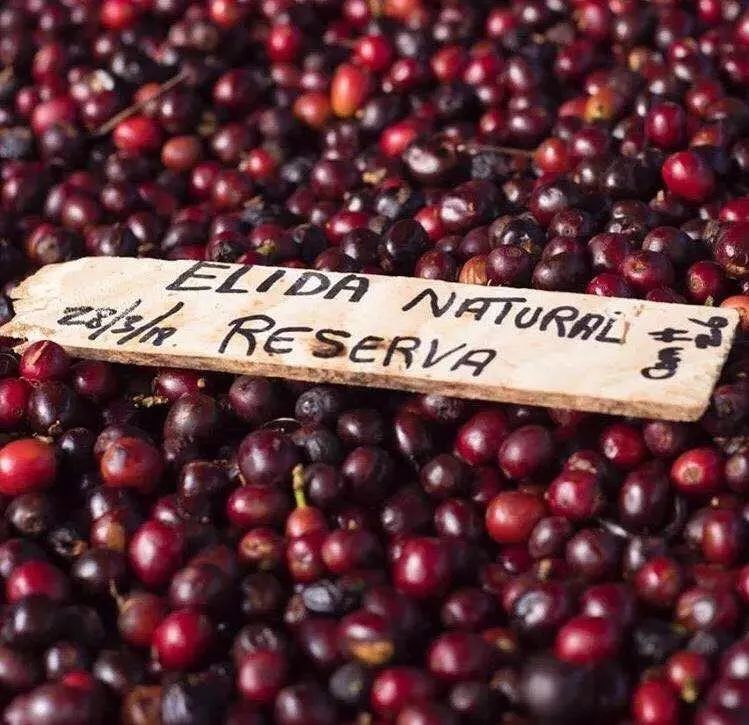
| 01 | production area description |
Pokuit producing area
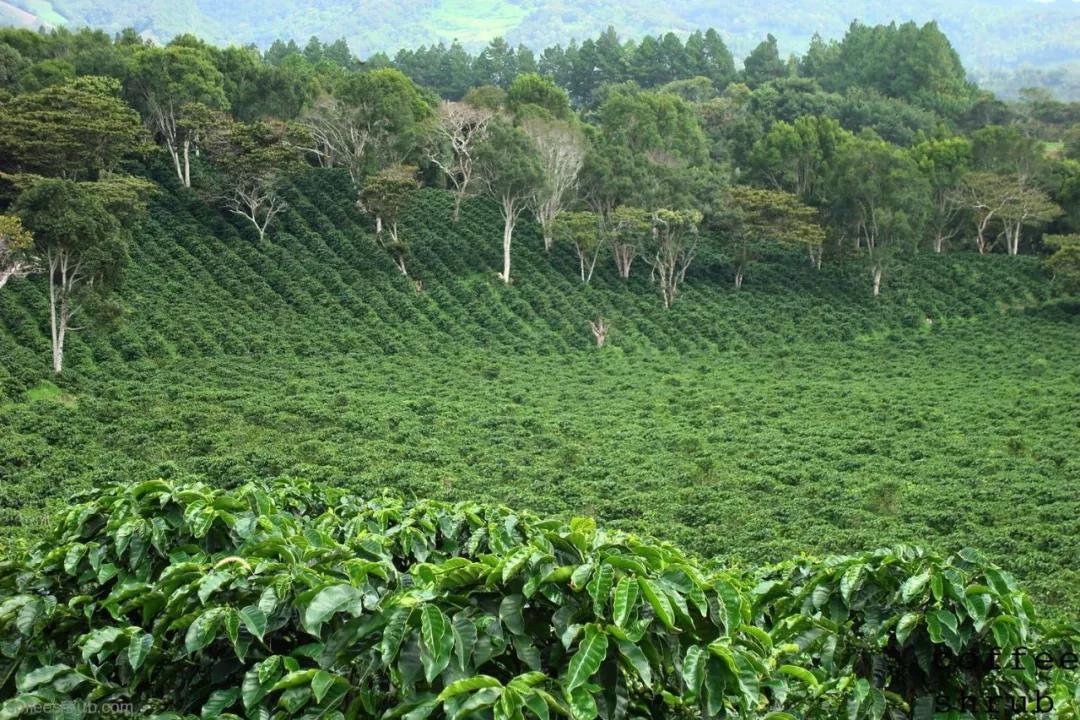
Poquet Boquete is a town of Chiriqui in Chiriki province, located near the border between Panama and Costa Rica, near the famous Baru Baru volcano, the scenery is beautiful, the soil is fertile and the climate and soil are suitable for producing quality coffee.
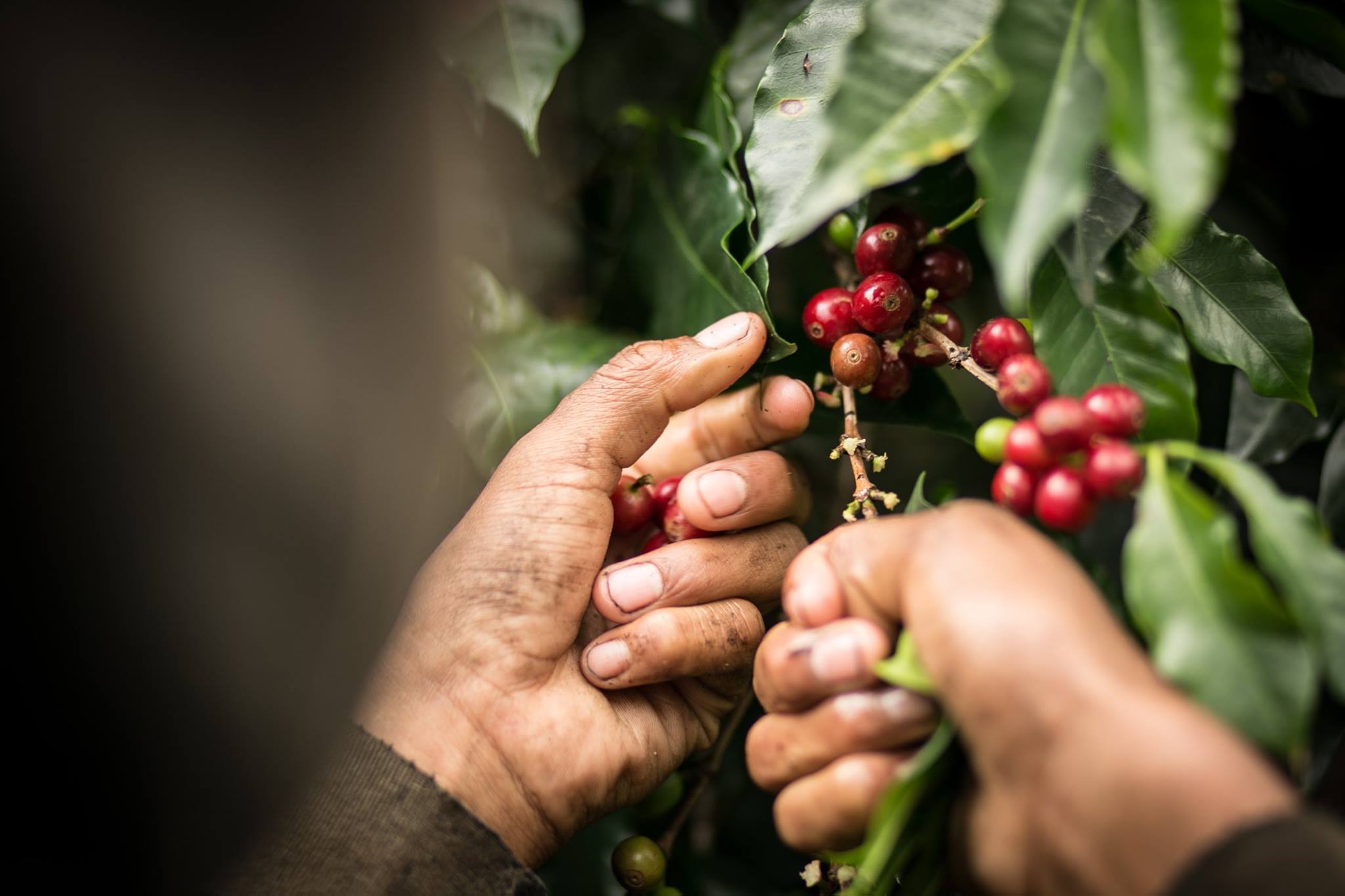
The microclimate in the Poquet Heights of Panama is a unique and important resource for boutique coffee in the Pokuit region; it is Panama's east-west environment that allows cold air to converge above 6500 feet through the Central Mountains, resulting in a variety of microclimates in the Pokuit region, making its temperature and rainfall very suitable for plant growth, so the coffee trees planted here are growing very well.
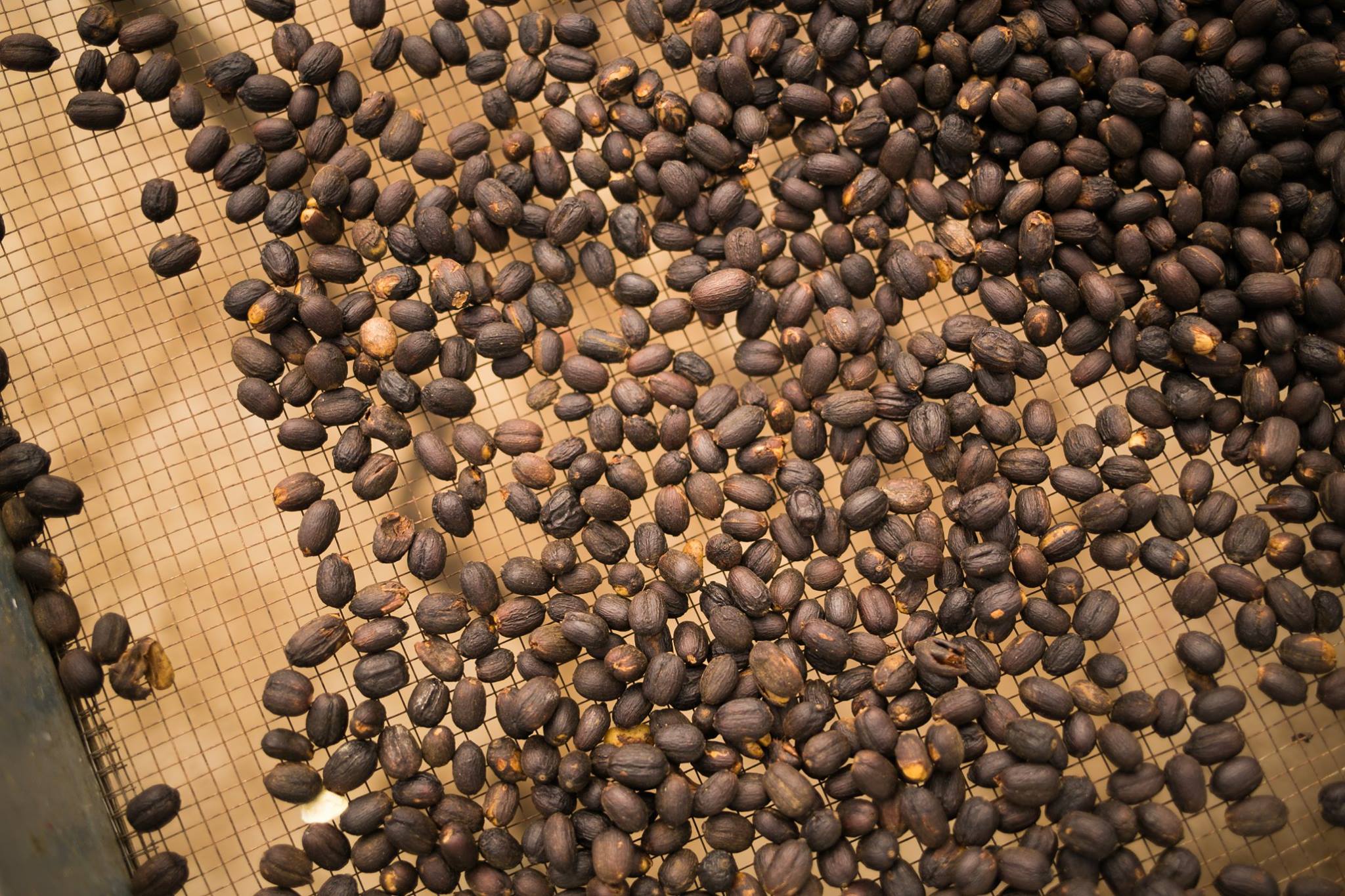
02 | Manor introduction
Alida Elida Estate Manor
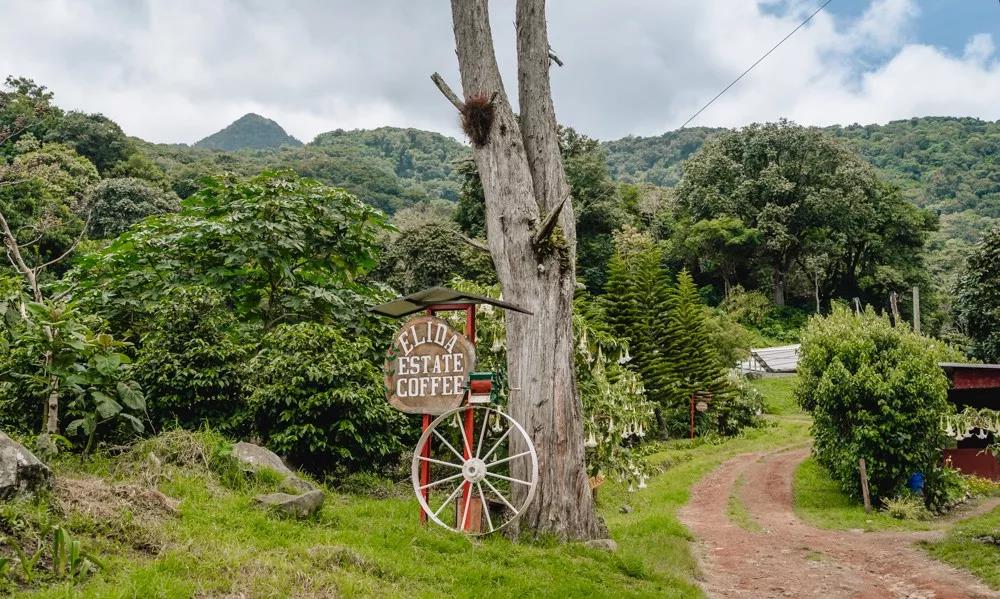
Elida Manor in Panama is located in Pokuit, a famous boutique coffee producing area in Panama. Elida Manor has a total area of 65 hectares, more than half of which is within the scope of Baru Volcano National Park, only 30 hectares of the estate is used for planting coffee trees, and the rest are virgin forests. Coffee is grown from 1670 to 1850 meters above sea level and is one of two coffee estates at high elevations in Panama (the other is located at Carmen in the Vulcan Valley. )
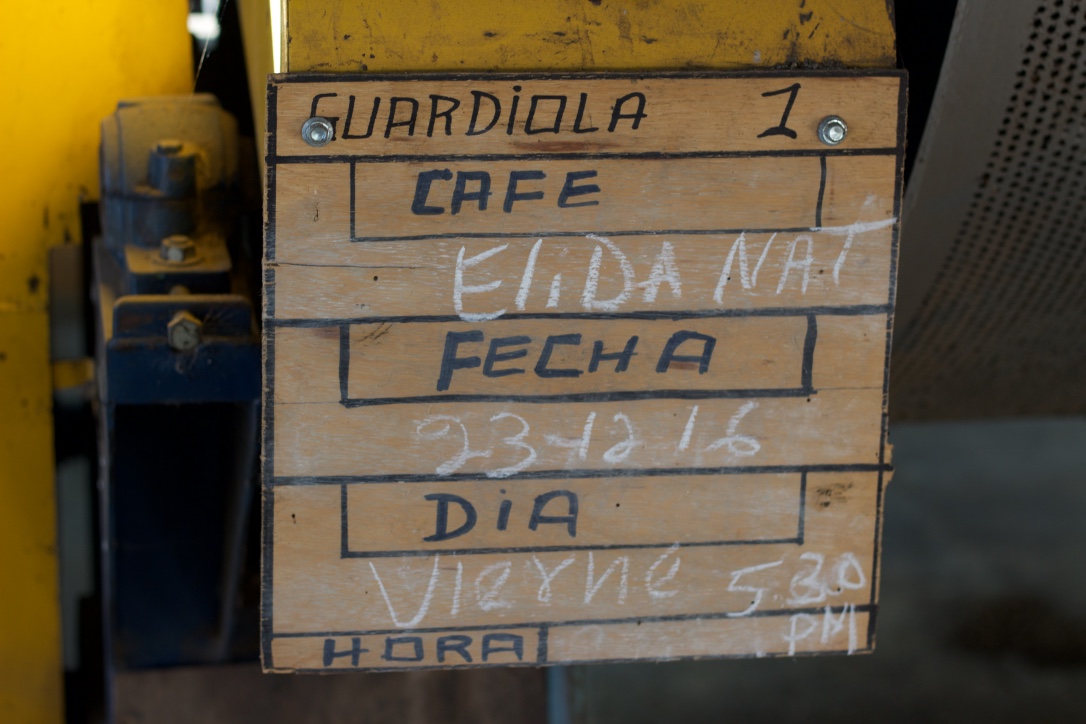
At such a high altitude, the low temperature delayed the ripening of the coffee berries, about a month later than the normal ripening period, while the fertile volcanic soil provided sufficient nutrients for the coffee, coupled with the good microclimate brought by the Baru volcano, Elida Manor was able to achieve good results in cup test competitions.
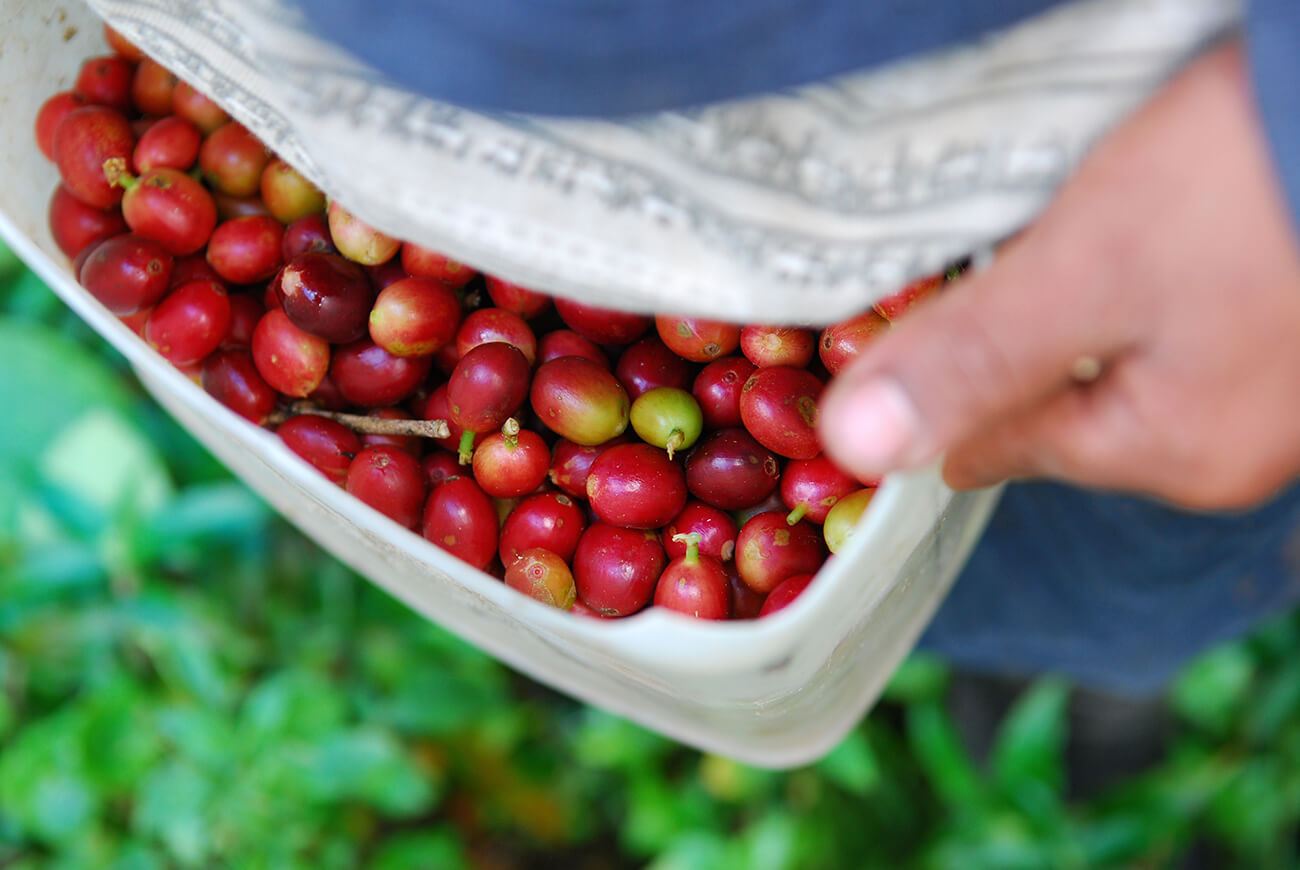
There are three main varieties planted in Elida Manor, namely, Catuai (Kaduai), Typica (Iron pickup) and Geisha (Rose Summer). The processing plant of the manor is halfway up the hillside. After the coffee is picked, it can be transported to the factory for processing as soon as possible to ensure that the quality of the coffee fruit is not affected. Of course, Elida's environment is also suitable for growing other high-quality temperate crops, especially tree tomatoes and some uncommon high-altitude fruits, which are interestingly often found in Elida coffee.
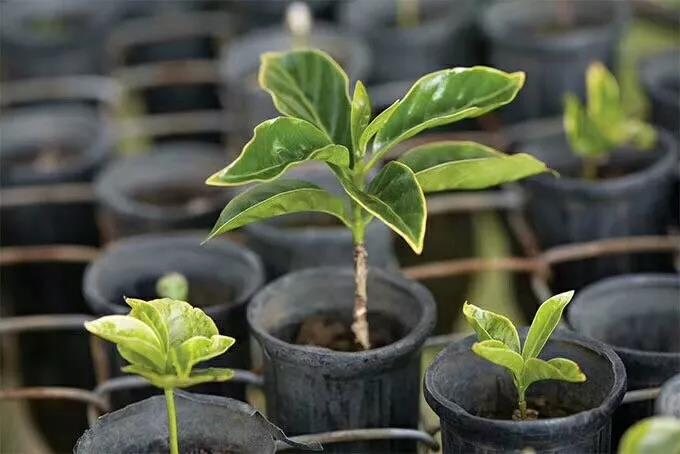
Alida Manor, the most famous estate of the Lamastus family, was founded in 1918. Since Robert Lamastus, the founder of the Lamastus family coffee estate, planted the first coffee tree, it has been a century and witnessed the popularity of boutique coffee around the world.
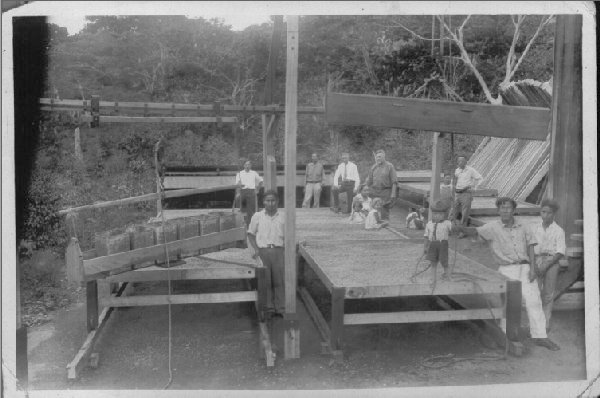
Alida Manor, the most famous estate of the Lamastus family, was founded in 1918. Since Robert Lamastus, the founder of the Lamastus family coffee estate, planted the first coffee tree, it has been a century and witnessed the popularity of boutique coffee around the world.
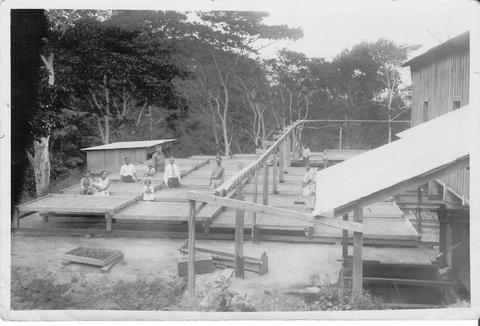
Until now, Alida Manor has been passed on by the descendants of the Lamastus family, including the owner Mr. Wilford, the son of Wilford's father Thatcher,Wilford / fourth-generation successor Wilford Jr.
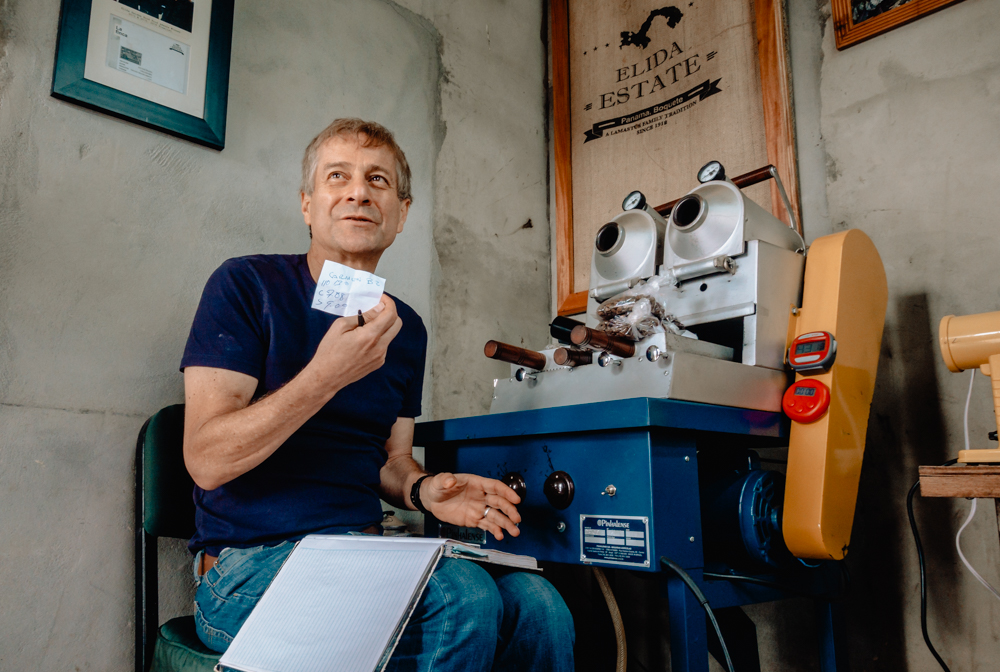
As a traditional coffee family, coffee has been integrated into their family genes. Wilford was born on a small coffee farm, and his parents were also born on the coffee farm, which now produces coffee from Arida Manor, Donkey Manor and Louito Manor.
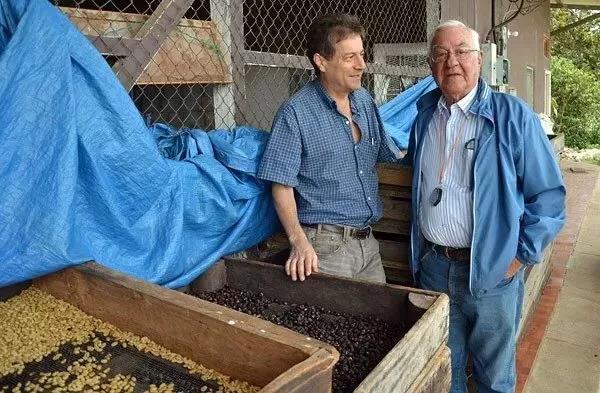
In addition to the unique ultra-high altitude and microclimate, Mr. Wilford, the owner of the manor, has also made considerable efforts in harvesting and processing. In order to meet the highest standard, the coffee at Elida Manor is only allowed to pick the most ripe coffee fruit (Ripe on Pinton) by hand. The maturity of the fruit is high, and the sugar content of pectin is naturally high, which is also the basis for producing high-quality Elida flavor.
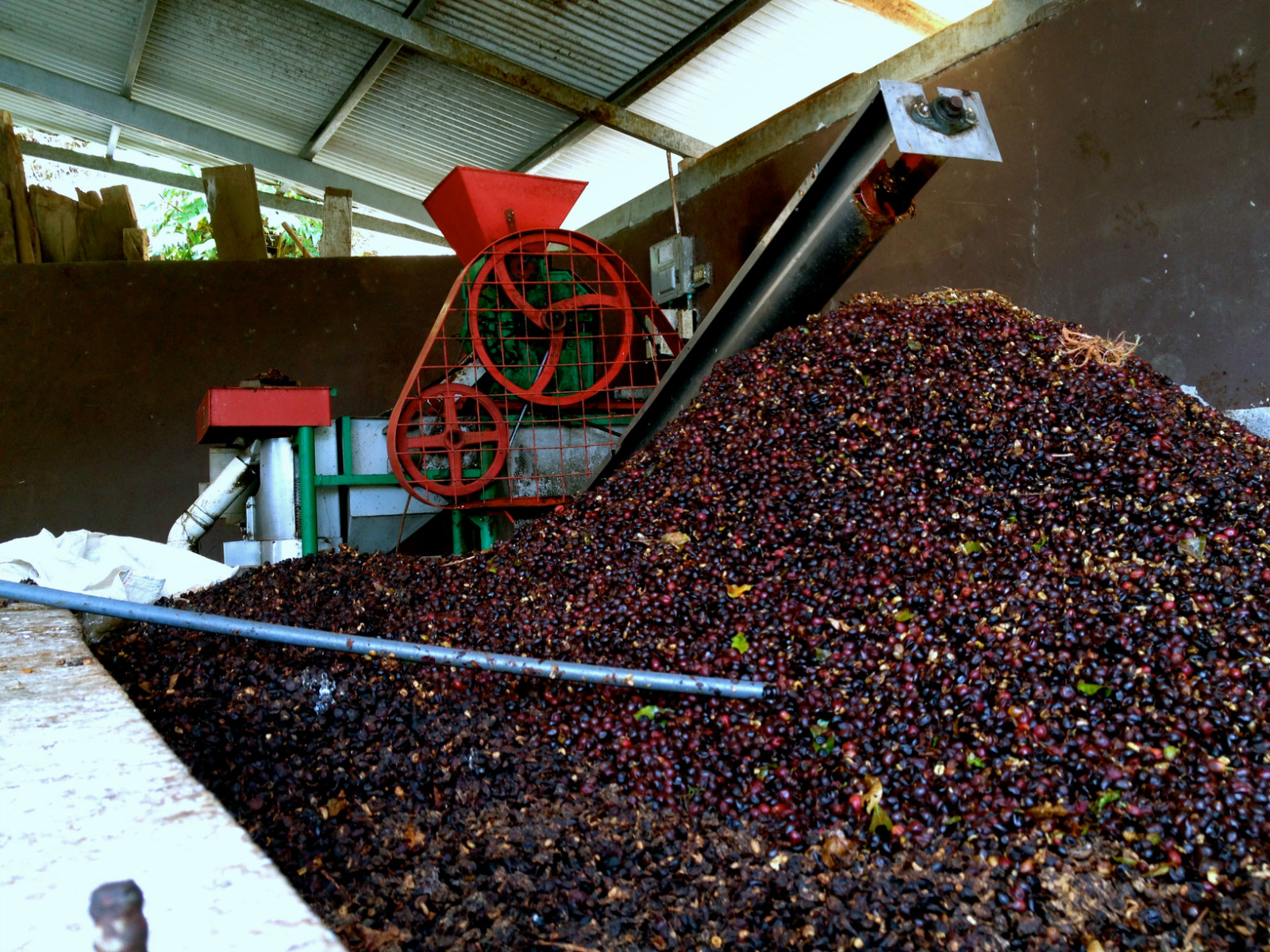
Mr. Wilford, the owner of the estate, in addition to the extremely strict treatment of coffee cultivation, the "purification" of raw beans is also more stringent than those of the same industry. In Panama Elida, after raw beans are processed, they need to go through more than 5 months of low temperature Resting to remove green, so that the flavor of coffee can be more balanced and full development.
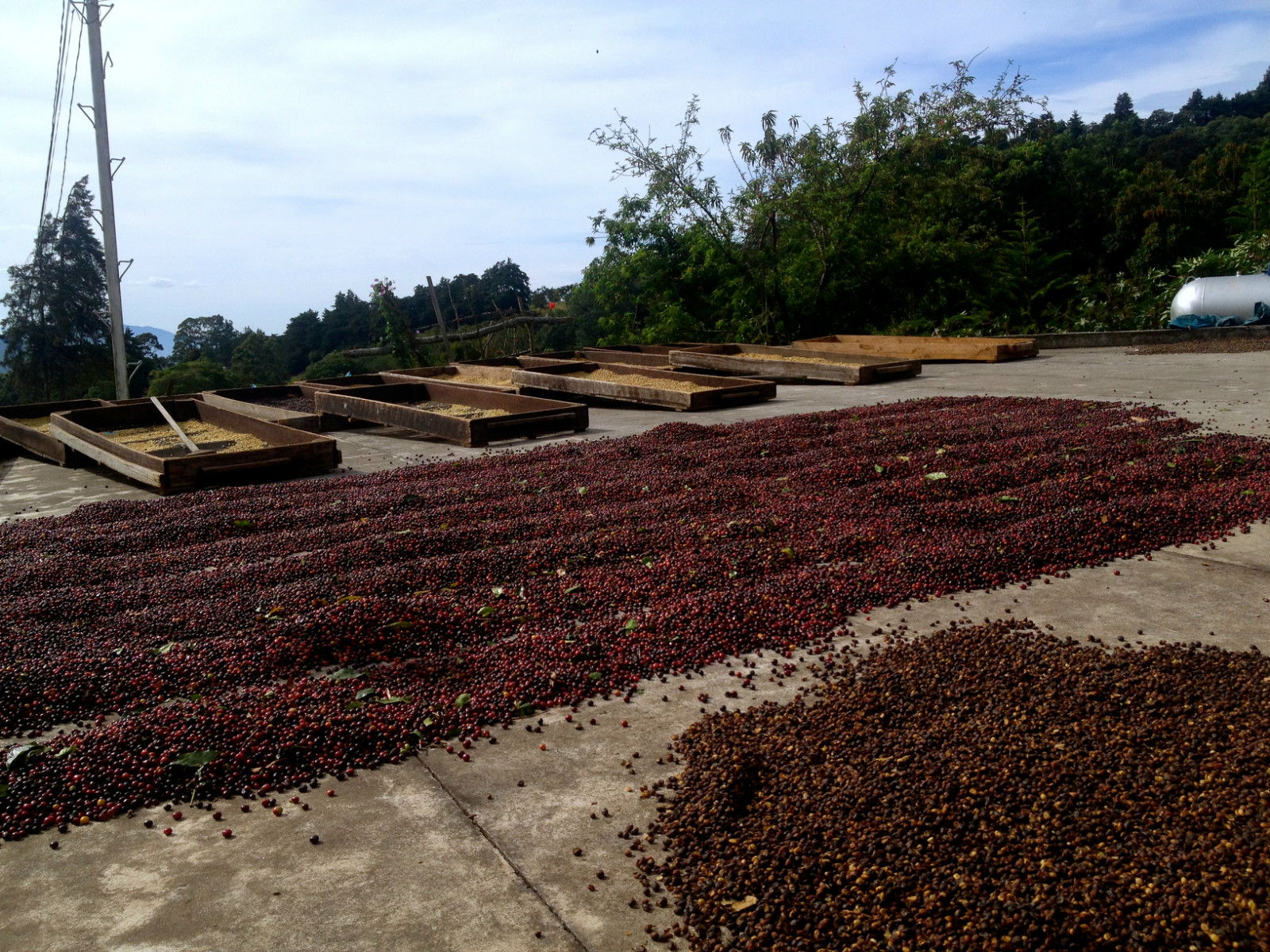
(low temperature Resting is a concept of raw bean purification promoted by coffee master George Howell in 2006. We found that raw beans in subtropics need to be kept at low temperature, but different treatments and elevations will change the time of low temperature Resting. Panama Elida is the best for 5 months of low temperature Resting.)
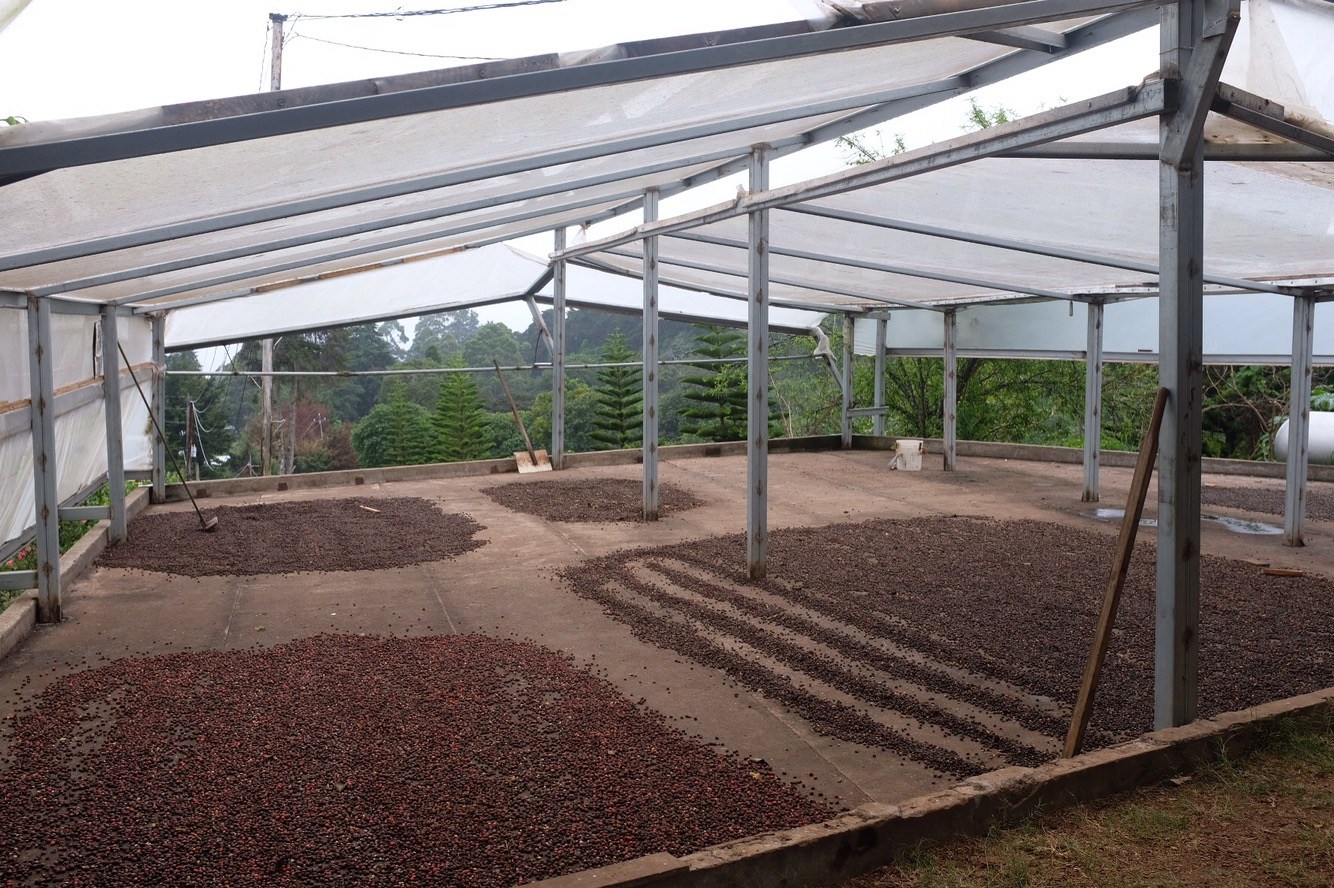
The oldest coffee estate in Panama and one of the highest in the Pokuit region, it grows rose summer estates at ultra-high elevations (2050m). Not only won many BOP championships, but also held the record for measuring the score of the BOP Cup (Alida Green Top Water washed Rose Summer with an ultra-high score of 94.66 in 2018, breaking the 2016 record of Alida Green Top Water Rose Summer 94.15).
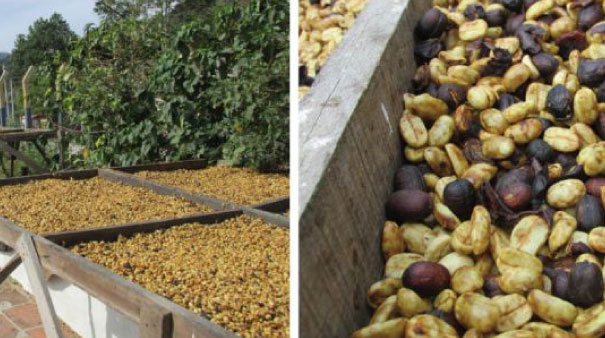
03 | Analysis of raw beans
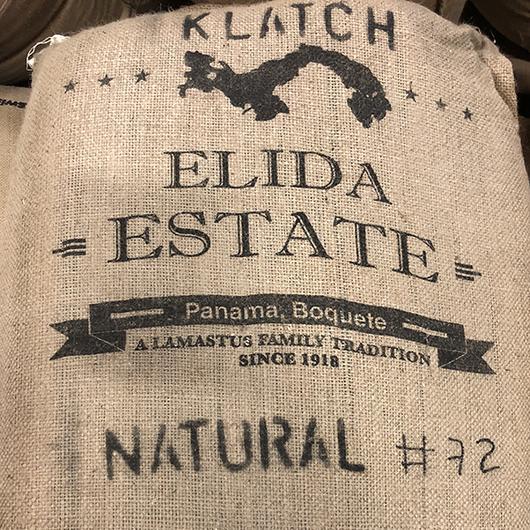
Typica is one of the oldest varieties of Arabica coffee discovered today, and the other is called bourbon. The Arabica species originated in Ethiopia, where it still grows naturally today in the highlands of the pristine rainforest.
The Ironpika bean is slender, the tree is tall, the fruit is oval, and the branches are slightly inclined. The four iron pickups are slender and open, with a tilt angle of 50 Murray 70 degrees. The coffee yield of each tree is very low, but the cup test score is very high.
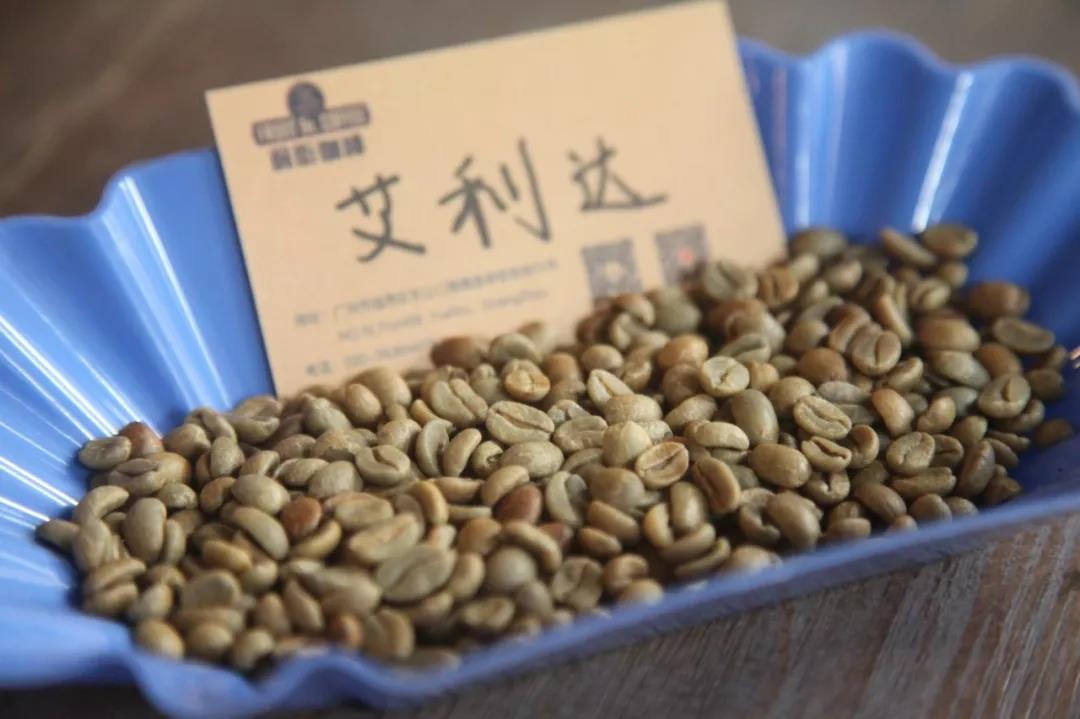
04 | Baking analysis
Due to the lower temperature into the beans, the flavor will not be as clean and violent as the high temperature into the beans, but the advantage is that the taste will be very soft and smooth, as the development time after the explosion is very short, so the firepower must be sufficient, otherwise it will not be enough to achieve the expected warm caramelization of the beans.
I will use taxiing, which is the place where most baking beginners ask. In fact, taxiing is to cool down or turn off the fire to continue baking beans using the temperature of the boiler. The beans are endothermic throughout the baking process, only the first explosion-the second explosion is an exothermic action, it is best not to increase the fire baking in these two stages, otherwise the beans are easy to feel spicy.
Taxiing emphasizes that the baked beans can be roasted continuously and slowly by using the residual temperature of the boiler and the temperature produced by the heat release of the beans during the burst period.
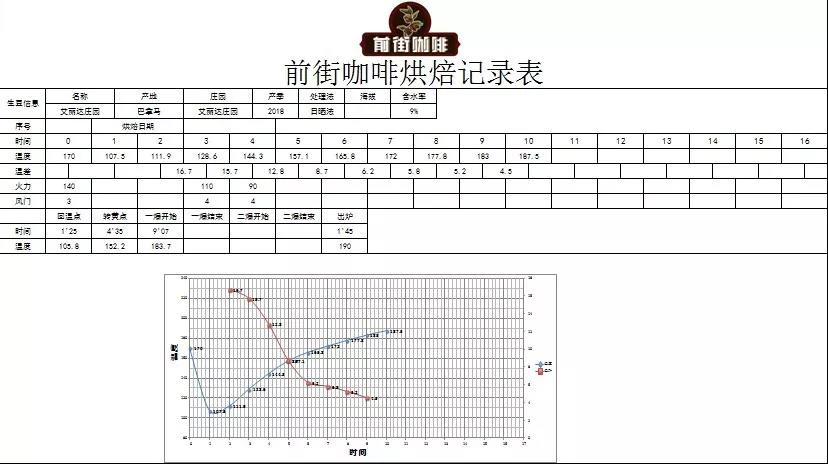
Roaster Yangjia 600g semi-direct fire
Enter the pot at 170 degrees Celsius, adjust the firepower to 140 degrees after opening the throttle for 30 seconds, and adjust the firepower to 140 degrees at the return point of 39 degrees Celsius. At this time, the bean watch turns yellow, the smell of grass disappears completely, dehydration is completed, the firepower is adjusted to 110 degrees, and the throttle is adjusted to 4 degrees.
At 8'45, ugly wrinkles and black markings appear on the bean surface, and the smell of toast obviously changes to the smell of coffee, which can be defined as a prelude to an explosion. at this time, listen carefully to the sound of the explosion point, to 9: 07 "start the explosion, adjust the firepower to 90 degrees, adjust the throttle to 4 (the firepower should be very careful, not so small as to be free of cracking sound), 1: 45" after the explosion, 190 degrees into the pot.
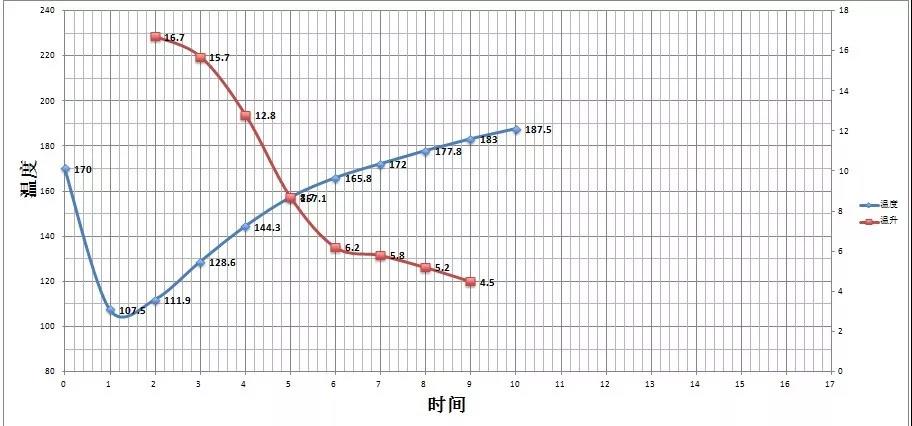
Cup test:
Dry incense: caramel, roasted almonds, flower fragrance
Wet fragrance: jackfruit, fermented wine
Palate: smooth in the mouth, with obvious flavors of raisins, peaches, oranges, cantaloupe, sucrose and caramel, green tea, high cleanliness.
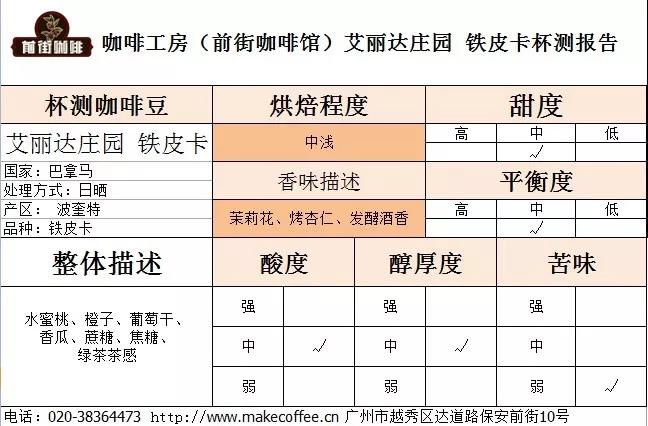
05 | Cooking analysis
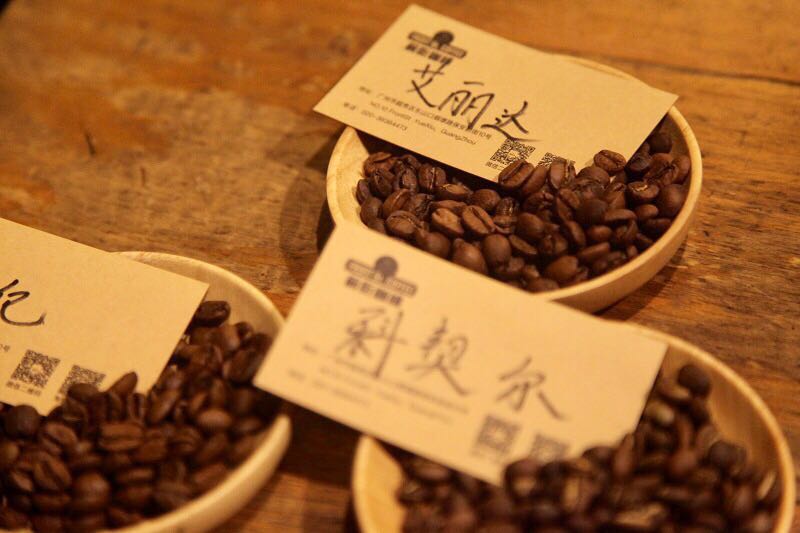
Recommended cooking methods: siphon, hand flushing
Degree of grinding: 3.5 (Japanese little Fuji R440)
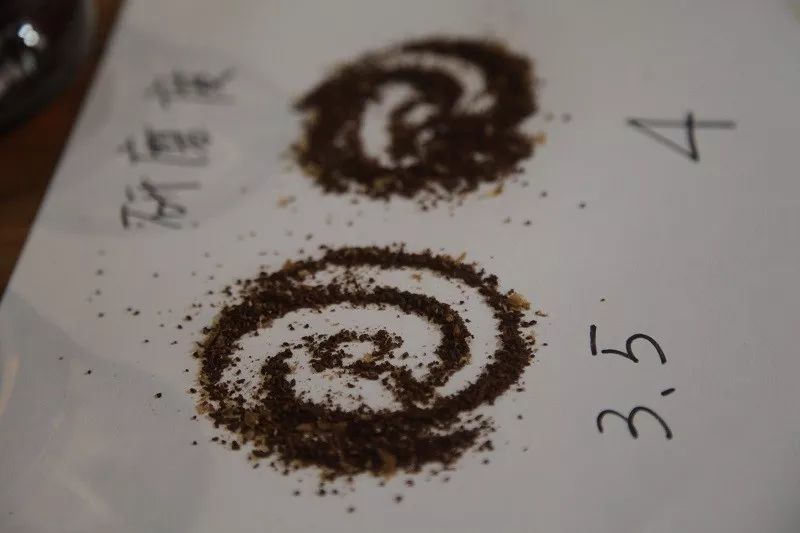
V60 filter cup, 15g powder, water temperature 90 degrees, grinding 3.5.The ratio of water to powder is close to 1:15
Steaming in 30 grams of water for 30 seconds
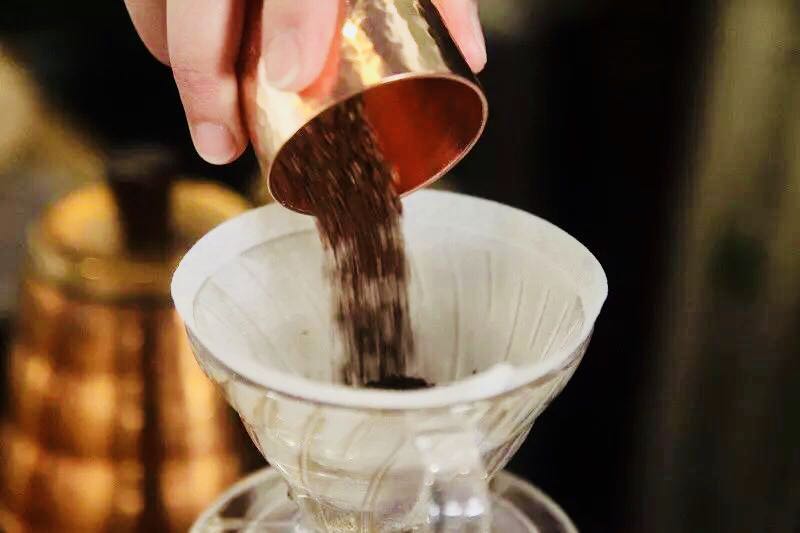
Segment: water injection to 120ml cut off, slow water injection to 225ml
That is, 30-120-225
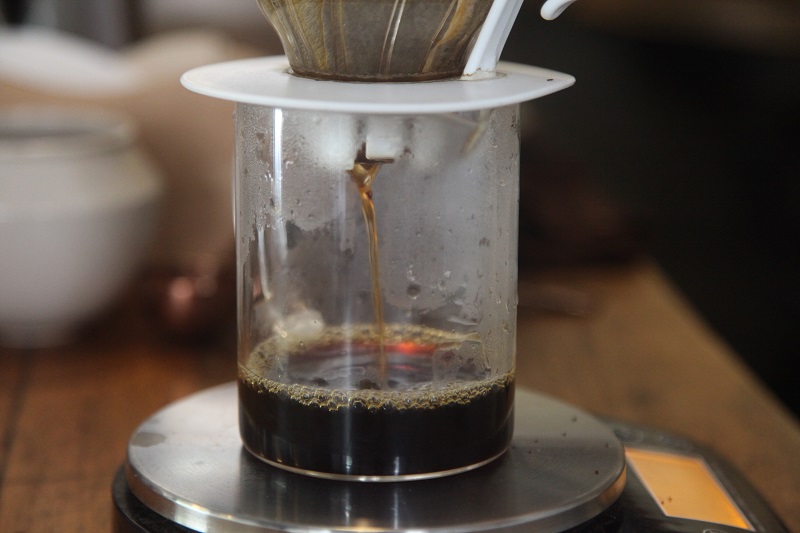
The entrance can obviously feel the flavor of peach, raisin and orange, and the sweetness of sucrose and melon emerges slowly, with the flavor of grapefruit and green tea at the end.
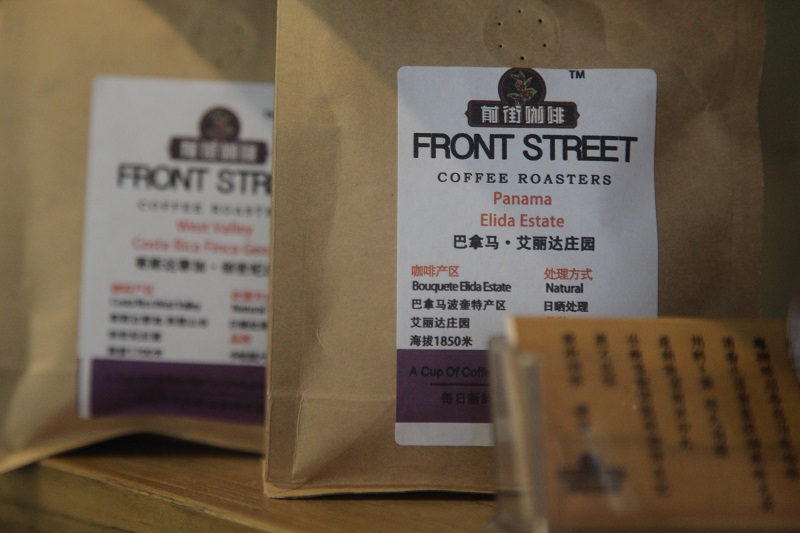
Important Notice :
前街咖啡 FrontStreet Coffee has moved to new addredd:
FrontStreet Coffee Address: 315,Donghua East Road,GuangZhou
Tel:020 38364473
- Prev
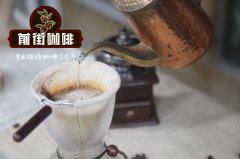
What are the flavor characteristics of Yemeni coffee beans? how much is a cup of Yemeni mocha coffee beans?
Professional coffee knowledge exchange more coffee bean information please follow the coffee workshop (Wechat official account cafe_style) as long as Yemeni coffee beans are immediately reminiscent of thick and wild sun-dried beans, Yemeni coffee farmers have been planting according to the ancient methods handed down by their ancestors. Due to the rugged terrain and little rainfall in Yemen, there are many coffee farmers in Yemen.
- Next

How much water does it take to make a single cup of coffee? How many degrees of blisters do you use to make coffee by hand? How much is the black coffee?
Professional coffee knowledge exchange more coffee bean information please follow the coffee workshop (Wechat official account cafe_style) how much water does it take to make individual coffee? How many degrees of blisters do you use to make coffee by hand? Black coffee how much water brew how to brew? Drinking coffee is really just a way of life. When it comes to coffee, always say carefully that you don't understand, even if you drink it, you just drink it casually.
Related
- Detailed explanation of Jadeite planting Land in Panamanian Jadeite Manor introduction to the grading system of Jadeite competitive bidding, Red bid, Green bid and Rose Summer
- Story of Coffee planting in Brenka region of Costa Rica Stonehenge Manor anaerobic heavy honey treatment of flavor mouth
- What's on the barrel of Blue Mountain Coffee beans?
- Can American coffee also pull flowers? How to use hot American style to pull out a good-looking pattern?
- Can you make a cold extract with coffee beans? What is the right proportion for cold-extracted coffee formula?
- Indonesian PWN Gold Mandrine Coffee Origin Features Flavor How to Chong? Mandolin coffee is American.
- A brief introduction to the flavor characteristics of Brazilian yellow bourbon coffee beans
- What is the effect of different water quality on the flavor of cold-extracted coffee? What kind of water is best for brewing coffee?
- Why do you think of Rose Summer whenever you mention Panamanian coffee?
- Introduction to the characteristics of authentic blue mountain coffee bean producing areas? What is the CIB Coffee Authority in Jamaica?

